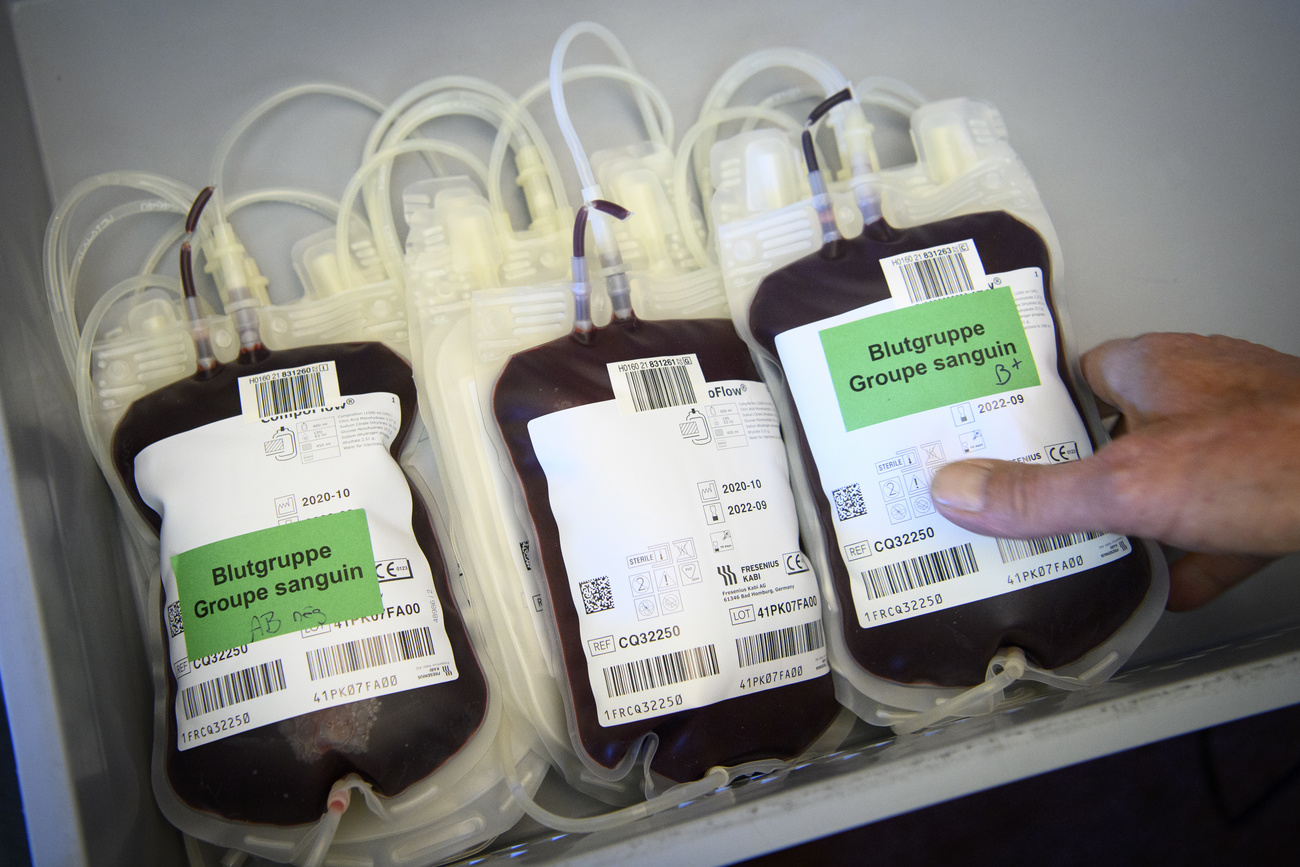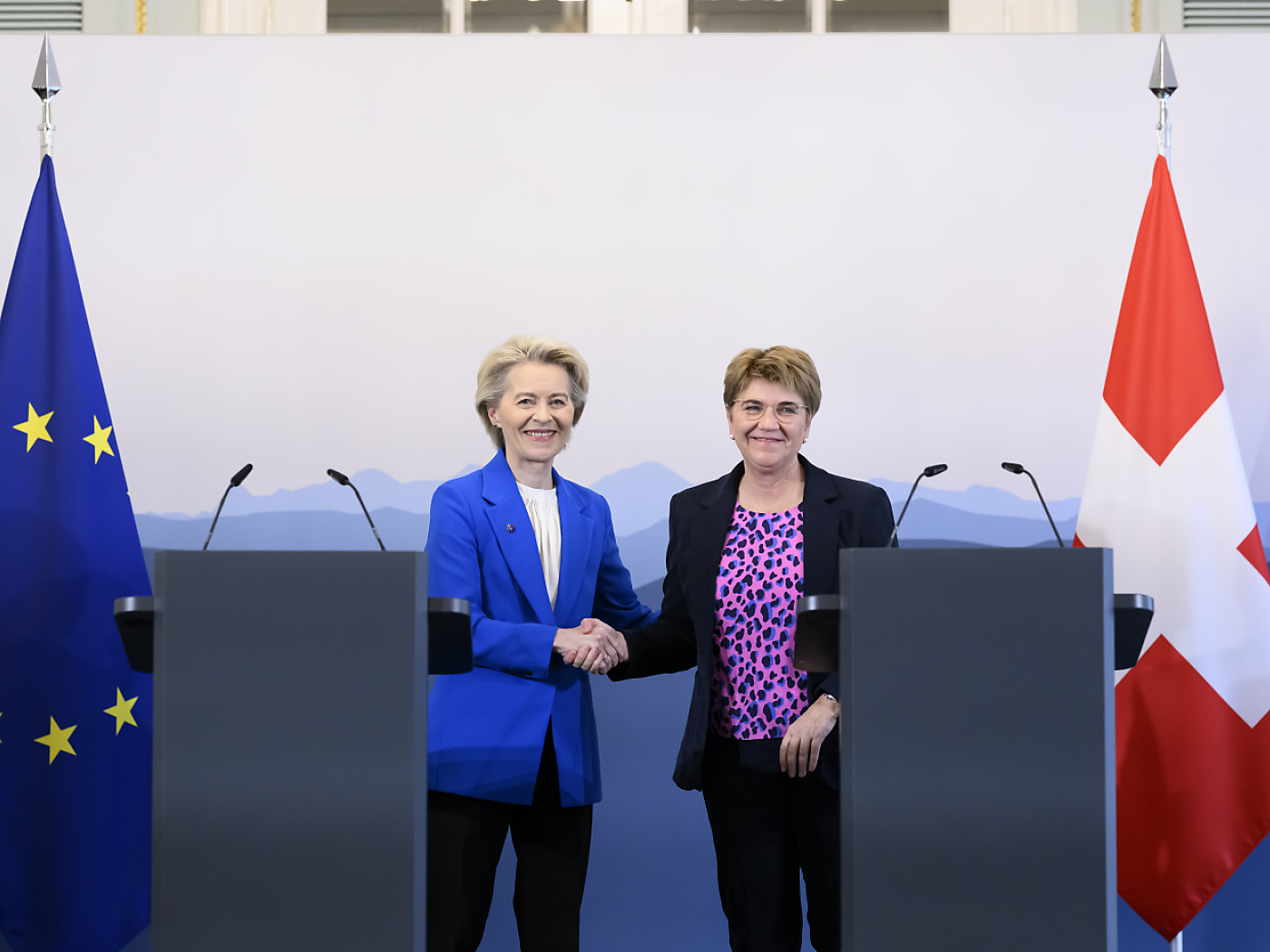
Switzerland Today
Dear Swiss Abroad,
Pop quiz: Men who use their mobile phones more than 20 times a day have a fifth fewer (a) brain cells, (b) hair follicles, or (c) sperm?
Here’s more on that and other news and stories from Switzerland on Wednesday.

In the news: Sperm quality, air passenger data and more money for the Middle East.
The more often a man reaches for his mobile phone, the lower the quality of his sperm, according to a Swiss study. Men who use their mobile phones more than 20 times a day have a fifth fewer sperm per millilitre of ejaculate than men who reach for their phones no more than five times a day, researchers from the Swiss Tropical and Public Health Institute and the University of Geneva revealed todayExternal link.
Switzerland is to exchange air passenger data with EU countries in the future. The government today approved a negotiating mandateExternal link for an agreement. Data that passengers provide when booking will be used: names, contact details and itinerary. The government argues that this information is an important tool in the fight against cross-border terrorism and organised crime. Some 70 countries have already introduced such a system, including all EU member states.
The Swiss government will ask parliament for additional funds to provide CHF90 million ($99 million) worth of humanitarian aid to the Middle East, it said todayExternal link. The funds will go mainly to the Geneva-based International Red Cross and Red Crescent Movement, the UN and international humanitarian NGOs that offer aid to people in the region affected by the armed conflict.

Gabriel Delabays sat calmly, his feet elevated on a reclining chair, as a nurse drew blood from his left arm at a Swiss transfusion centre today, the first day gay men in Switzerland could give blood without extra restrictions.
Switzerland amended blood donation criteria for men who have sexual relations with other men, making ineligibility criteria the same for homosexuals and heterosexuals.
“I’m moved that we made it, especially after such a long battle,” said Delabays, a member of the communal council in the Lausanne suburb of Ecublens, who represents the centre-right Radical-Liberal Party.
“In some ways, I think this is a small page in a history book that says: on November 1, 2023, Switzerland allowed homosexuals to donate their blood more easily.”
Under Switzerland’s new regulations, a four-month waiting period applies to all people after their last sexual encounter with a new partner – heterosexual or homosexual – or a 12-month waiting period if sexual contacts have taken place with more than two partners within the last four months.
Until 2017, gay men were systematically barred from giving blood in Switzerland, a policy dating to the start of the HIV/AIDS epidemic in the 1980s. Since then, men sexually active with other men were allowed to donate blood only if 12 months had passed since their last homosexual encounter.
“The main feeling we have is ‘finally’. Finally we can take part in society in this way,” said Gaé Colussi, regional officer for the French-speaking part of Switzerland at Pink Cross, which represents the interests of gay and bisexual men across the country.

Swiss tennis star Roger Federer says it is important that his children grow up cosmopolitan and able to communicate in several languages.
His four children – 14-year-old twin girls and nine-year-old twin boys – speak fluent Slovak, their mother’s language, in addition to German, Swiss-German and English. However, he hasn’t taught them Afrikaans, the second language of his mother, Lynette, reports the online edition of Schweizer IllustrierteExternal link.
“Afrikaans is still on the to-do list. I have to tell grandma that she has to take over,” he once joked. His Afrikaans isn’t good enough for that, he says. “I understand it a bit and I speak it a bit. It’s related to German, after all. But I could never get away with it.”
I spoke to Lynette Federer many years ago about the Roger Federer Foundation and the charitable work that her son does in South Africa.
Federer, who also has South African citizenship, attended the final of the rugby world cup between South Africa and New Zealand with his family in Paris at the weekend. The support apparently helped: the Springboks beat the All Blacks 12-11 to retain their title.
More

In compliance with the JTI standards
More: SWI swissinfo.ch certified by the Journalism Trust Initiative









